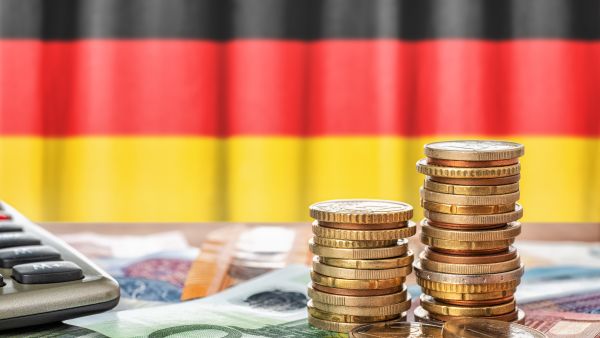ALBAWABA — Germany's gross domestic product contracted more than first thought over the last three months of 2022, figures published on Friday by the Federal Statistical Office said, raising concerns Europe's industrial powerhouse could be headed into a recession.
In its first contraction since the first quarter of 2021, GDP shrank by 0.4 percent quarter-on-quarter in the fourth quarter of 2022, revised down from its initial estimate of 0.2 percent, after seeing growth of 0.5 percent in the third quarter.
GDP grew 0.9 percent in full year 2022 of the back of Russia's invasion of Ukraine which triggered a sharp rise in energy prices in Europe, as gas supplies to Europe was shocked off by Russia, in part blowing up inflation.
The subsequent increase in inflation climbed to a multi-decade high in Germany, dragging on the economy, said Destatis.
Rising prices slowed consumer spending and business investments, Destatis added, as consumer confidence and a willingness to spend fell close to historical lows.
Concerns that Germany would be dragged into a deep recession have been slightly calmed as officials currently predict economic growth of 0.2 percent in 2023, having previously anticipated a drop.
The negative revision to growth figures showed that a "recession is in the making", Carsten Brzeski, head of macro at ING Bank said in an ING Snap. "Looking beyond the first quarter, the latest improvement in soft data suggests that the German and Eurozone economies are in the middle of a typical cyclical recovery, while we fear that we are actually in the middle of a structural transition. If we are right, any rebound this year will be softer and more short-lived than many expect, and subdued growth rather than a strong rebound remains the base case. Or in other words: not falling off the cliff is one thing; staging a strong rebound, however, is a different matter."
"Today’s numbers mark the first part of what could become a technical recession in Germany. We think that the risk of yet another contraction in the first quarter and, thus, a technical recession is high and that the German economy is still miles away from staging a strong rebound," Brzeski concluded.







